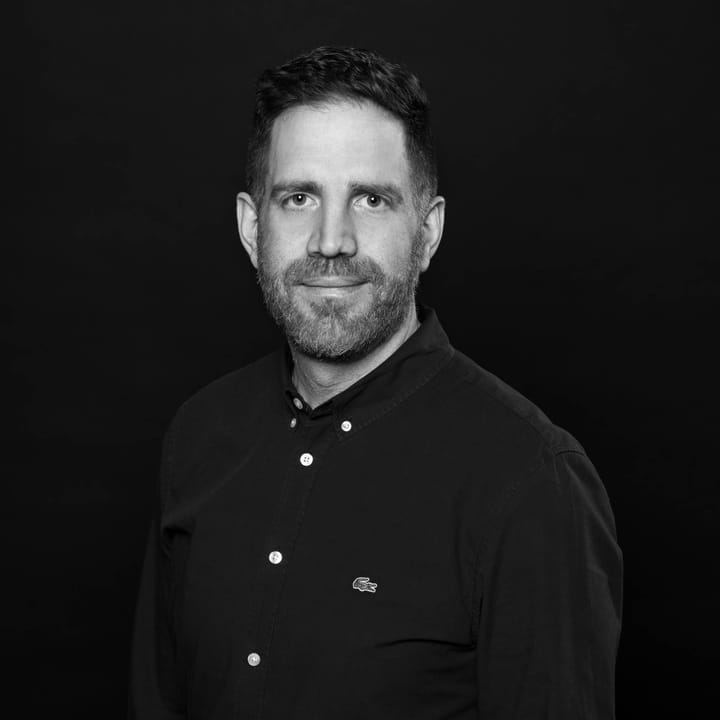Delaying freight decisions
Plus: ATA v. FreightWaves | Fla. wins truck parking funding

Decision-making in logistics is getting harder to see through the "fog of war," as tariff threats are back on the table and China pushes back while global partners scramble to adjust.
Fleet cybersecurity is raising fresh alarms after experts spotlighted serious vulnerabilities in trucks and connected systems during the annual CyberTruck challenge. And now, top industry voices are turning on each other in public, exposing deeper fractures just as the sector needs alignment and focus.
Let's get rolling.

Cultivating the cybersecurity leaders of tomorrow
Every summer, the CyberTruck Challenge, with primary backing of the National Motor Freight Traffic Association, holds a week-long event to develop talent and build community around heavy vehicle cybersecurity. The multi-day competition draws computer engineers from across the country to solve a security issue is that is, or could, threaten North America’s long-haul rigs and fleets. The long-term goal, however, is to develop a community for heavy vehicle cybersecurity that goes beyond company and university interests and, in the process, brings awareness, training and passion to the heavy vehicle cyber domain.
Colorado State Associate Professor Jeremy Daily is co-founder (along with Karl Heimer) of the CyberTruck Challenge, and his current students represent the next wave of software engineers who will have the jobs of fending off cyber attacks in the nation’s trucks. We asked Daily to give us a rundown on this year’s CyberTruck Challenge and asked what's keeping him up at night. —Alan Schmadtke
What was the focus of this year's CyberTruck Challenge?
As in previous years, the CyberTruck Challenge focused on enhancing the cybersecurity of our heavy truck infrastructure by fostering a collaborative and innovative community. Our mission is always to connect next-generation talent with the heavy-duty trucking industry to keep vehicles secure. We keep this theme consistent across the years because it helps us remain open-minded and focused.
We’ve heard that cybersecurity experts who watch the competition sometimes get amazed by the intelligence of the competitors and how fast they find answers. Did that happen this year?
Absolutely. The challenge is designed to cultivate the cybersecurity leaders of tomorrow, professionals who are both technically skilled and well-connected across the industry. Watching participants in action is always inspiring. Their creativity, speed and insight were especially impressive this year. The diversity of perspectives and expertise often leads to remarkable moments of problem-solving that even seasoned experts find surprising. When you have that diversity of informed and creative minds coming together, you’re bound to come across moments of genius. It’s rewarding to witness.
What worries you right now about the trucking industry?
The worries I have today are the same that I’ve had since we started many years ago: Infrastructural system security still seems to be an afterthought in many areas of our world, including the trucking industry. It is critically important for us to center this work, especially as our world becomes increasingly complex and dependent upon connected technology.
I’m gratified that over the years we have found support and this community to help combat the issues that keep me up at night. Our hope is to continue improving our relationships with industry and other stakeholders so we can truly transform how we engage with sensitive systems in the technology we want them to employ.
Can you share what some of your students are researching now? Do you, or they, get research ideas from the trucking industry asking you to look into a particular issue?
Much of our research at Colorado State is under nondisclosure agreements, so we’re limited in what we can publicly share. Even the research that isn’t under NDA often requires careful review before release.
Some of the security concepts we explore are conceptual and affect more than just trucking. For example, the protocols used in trucks are also used in other industries like maritime, agriculture and power generation. The connections with industry from the cyber events is helpful in understanding these potential applications.

FreightWaves vs. the ATA
Refill your coffee, grab a Danish and take a seat. It seems we have a social media trucking squabble going on. On one side is Craig Fuller, founder and CEO of FreightWaves, which covers the freight and logistics market. On the other is American Trucking Associations President Chris Spear.
Fuller made an assertion on X last week that the ATA is losing ground as an industry influencer because independent trucking operations are growing. The ATA favors larger fleets.
Spear’s response: “Ah, Mr. Fuller... again, claiming to champion the little guys while deep-pocket investors keep him out of bankruptcy. How many failed business ventures is Craig up to now? Careful who you hitch your trailer to, folks. Best do your homework first.”
Why this matters: Spear considers Transport Topics, ATA’s publication, a competitor, so the public back-and-forth will at least draw some eyeballs to both camps. But during a time of tariffs and extreme business uncertainty, does the trucking industry need this kind of infighting? (FreightWaves)

Daimler growth plan: Truckmaker looks overseas and to defense industry.
Amazon tragedy: A car hits parked Amazon truck, two die.
Helping flood victims: A federal emergency declaration should help commercial trucks affected by the July 4 flooding in Texas.
Weaver tributes: Fellow drivers remember trucking troubadour Bill Weaver.
Fast-rising waters: Watch a time-lapse video of how fast flood waters covered roads in Texas.

Inside stories
The first episode of a new YouTube documentary series about professional truck drivers was released this week. Produced by Nothing Without Trucking Films, "DRIVEN" is a three-episode series that aims to tell the inside stories about typical truck drivers.
“These stories need to be told... to ensure trucking always has a seat at the table when government officials are making decisions that affect our industry and the broader economy.” —ATA spokesman Jeremy Kirkpatrick
The series features three truckers: Roland Bolduc, a FedEx driver and two-time National Truck Driving Championships Grand Champion; Tiffany Hargraves, a single mom who drives a 24-hour round-trip route on the iconic Dalton Highway; and Germany Williams, who turned his life around after securing his CDL.
Here is the trailer, and this is the first episode of DRIVEN. You can watch for free.

'Fog of war' pushes companies to delay freight decisions
President Trump's on-again, off-again tariffs, which apparently will be on again soon, are causing trucking-related businesses to put off key decisions until they know what the long-term costs are going to be. “We’re kind of in this fog of war. Everybody’s making very short-term decisions right now,” says Jonathan Starks, CEO of FTR Transportation Intelligence.
Why this matters: The longer businesses put off decisions, the more it can affect their bottom line (and stock price). Anything that threatens a decrease in revenue also threatens staffing and can make for more strain on the supply chain down the line. (The Trucker)
Florida wins the parking game
As part of the Big Beautiful Bill that became law last week, Florida was the big winner when it came to securing funding for more truck parking spaces. Of the $275 million that the U.S. Department of Transportation is handing out for new and expanded parking facilities around the country, the Sunshine State will get $180 million of it. If you're calculating at home, that's 65.4%.
Why this matters: The Florida money will get invested along the oft-congested I-4 corridor, which runs from Daytona Beach to Tampa and through Orlando and Lakeland, directly past Walt Disney World and Universal Studios. Florida is also a key electoral state, though not a swing state anymore in presidential politics. (Parking News)
Texas leads the way for better benefits and work-life balance
Texas is leading all other U.S. states when it comes to improved pay and benefits for truck drivers and also for better work-life balance. Florida is No. 2 for increasing pay and benefits, while Tennessee and Georgia are next highest. New York is second for work-life balance improvements.
Why this matters: The compensation data comes from Tech.co's latest logistics report, "Moving Good with Fewer Hands." It reports that 56% of U.S. freight businesses say they will be increasing driver pay and benefits and improving driver work-life balance through shorter hours and more reasonable routes. (Tech.co)

OOIDA turns to highway bill again
In addition to pushing Congress to approve changes to the overtime law that didn’t make it into the Big Beautiful Bill (now law) last week, the Owner-Operator Independent Drivers Association is turning its attention back to the 2025 highway bill. Some of the original bill’s terms were fulfilled in law when President Trump signed last week.
Why this matters: One area of continued concern is bathroom access for drivers. Rep. Troy Nehls (R-Texas) reintroduced the Trucker Bathroom Access Act earlier this year to ensure that drivers can use the same facilities as the general public. This has been an ongoing fight for Nehls. (LandlineMedia)
Thanks for reading today's edition! You can reach the newsletter team at editor@theinsidelane.co. We enjoy hearing from you.
Interested in advertising? Email us at newslettersales@mvfglobal.com
The Inside Lane is curated and written by Alan Schmadtke and edited by Bianca Prieto.





Comments ()